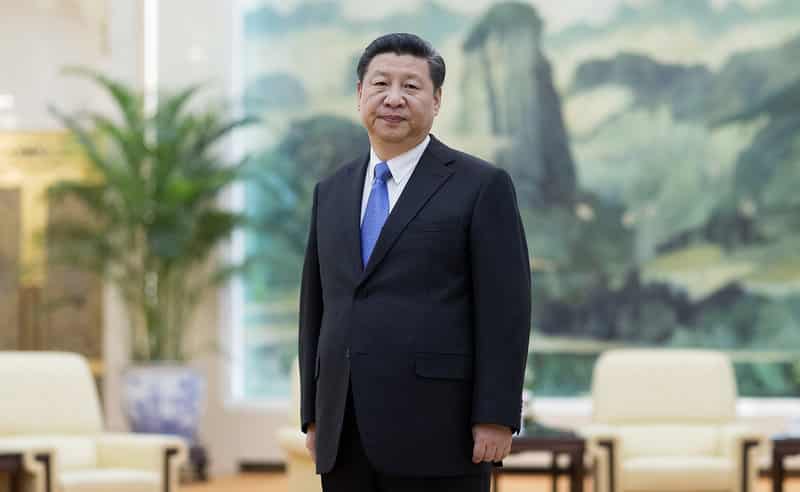The War on Savings: the Panama Papers, Bail-Ins, and the Push to Go Cashless
//
=By= Ellen Brown

Platinum Stash mashup by Rowan Wolf, Sprott Silver Bars.
[dropcap]T[/dropcap]he bombshell publication of the “Panama Papers,” leaked from a Panama law firm specializing in shell companies, has triggered both outrage and skepticism. In an April 3 article titled “Corporate Media Gatekeepers Protect Western 1% From Panama Leak,” UK blogger Craig Murray writes that the whistleblower no doubt had good intentions; but he made the mistake of leaking his 11.5 million documents to the corporate-controlled Western media, which released only those few documents incriminating opponents of Western financial interests. Murray writes:
Do not expect a genuine expose of western capitalism. The dirty secrets of western corporations will remain unpublished.
Expect hits at Russia, Iran and Syria and some tiny “balancing” western country like Iceland.
Iceland, of course, was the only country to refuse to bail out its banks, instead throwing its offending bankers in jail.
Pepe Escobar calls the released Panama Papers a “limited hangout.” The leak dovetails with the attempt of Transparency International to create a Global Public Beneficial Ownership Registry, which can collect ownership information from governments around the world; and with UK Prime Minister David Cameron’s global anti-corruption summit next month. According to The Economist, “The Panama papers give him just the platform he needs to persuade other governments, and his own, to turn their tough talk of recent years into action.”
The Daily Bell suspects a coordinated global effort linked to the push to go cashless. It’s all about knowing where the money is and who owns it, in order to tax it, regulate it, “sanction” it, or confiscate it:
Without privacy, authoritarianism flourishes because it is impossible to build and expand private networks that would act as a deterrent . . . . A worldwide transparency regime virtually guarantees abuses and corruption from those in power.
This is a reason why the “cashless society” idea is such a bad one. When no one is able to use cash, financial histories will be easily available via electronic bank records.
Michael Snyder of InvestmentWatchBlog.com also links the Panama Papers with the push to go cashless:
. . . [W]ith this Panama Paper leak and all its pre-conditioning against tax havens, people aren’t realizing yet that very soon, once Negative Interest Rates and Bail-Ins are being openly discussed and prepared for implementation, the whole tax haven or tax dodger discussion in the media will quickly switch from talking about corrupt billionaires and shell companies half way around the world, and instead will be talking about something much closer to home . . . .
In my strong opinion this whole thing is all part of the coming capital control war, which ties directly in with the coming transition to a biometric digital currency, the implementation of Negative Interest Rates, the rollout of large scale systemic bail-ins, and the demonization and eventual criminalization of physical assets that are outside of direct taxation control (which again would be done using the pre-conditioned guise of “tax havens”, with physical precious metals and physical cash being the main targets).
War on Corruption or War on Savers?
What we may be witnessing here is the 1% going after the 10% of people who, according to German researcher Margrit Kennedy, do not need to borrow but are “net savers.” Today the remaining 90% are “all borrowed up.” Either they are unwilling to borrow more or the banks are unwilling to lend to them, since they are poor credit risks. Who, then, is left to feed the debt machine that feeds the 1%, and more specifically the 0.001%? The power brokers at the top seem to want it all, and today that means going after those just below them on the financial food chain. The challenge is in squeezing money from people who don’t need to borrow. How to legally confiscate their savings?
Enter bail-ins, negative interest, all-digital currencies, and the elimination of “tax havens.”
Bail-ins allow the largest banks to gamble with impunity with their depositors’ money. If the banks make bad bets and become insolvent, they can legally confiscate the deposits to balance their books, through an “orderly resolution” scheme of the sort mandated in the Dodd-Frank Act.
Negative interest is a fee or private tax on holding funds in the bank.
Eliminating cash prevents the bank runs that these assaults on people’s savings would otherwise trigger. Money that exists only as digital entries cannot be withdrawn and stored under a mattress.
Exposing tax havens shows the predators where the money is and who has title to it, facilitating its confiscation and preventing the funding of massive rebellions against confiscation.
Orchestrated at Davos
That could help explain those coordinated developments we’ve been seeing across the central-bank-controlled world, proliferating particularly after the January summit of the World Economic Forum in Davos, Switzerland, where the global elite gather to discuss the hot economic issues of the day.
According to one Morgan Stanley attendee, a notable topic this year was the need for “a rapid introduction of a cashless society so that even more negative deposit interest rates could be introduced in Europe to offset likely secular stagnation.” With the use of physical cash curtailed, J.P. Morgan estimates the European Central Bank could ultimately bring interest rates as low as negative 4.5%.
“Secular stagnation,” the official justification for negative interest, means a chronic shortfall in demand: not enough money chasing goods and services. Today virtually all money is created by banks when they make loans; and when old loans are paid off, new ones must be taken out to maintain the money supply. Central banks have traditionally dropped interest rates to stimulate this continual borrowing, but interest rates have now effectively been pushed to zero. The argument is that they can be pushed below zero – but only if cash withdrawals, and hence bank runs, are not an option.
That is the argument; but as Paul Craig Roberts, former Assistant Secretary of the Treasury for Economic Policy, observes:
The notion is that the economy’s poor economic performance is not due to the failure of economic policy but to people hoarding their money. The Federal Reserve and its coterie of economists and presstitutes maintain the fiction of too much savings despite the publication of the Federal Reserve’s own report that 52% of Americans cannot raise $400 without selling personal possessions or borrowing the money.
In an article titled “Exposing the Hidden Agenda of Davos 2016”, Zerohedge reports on a flurry of activity during and after Davos related to the push to go cashless. But stimulating demand may just be the cover story for something darker behind this orchestrated effort.
Rescuing the Economy or the Banks?
Of greater concern at Davos than “secular stagnation” was the imminent insolvency of some major banks. Ambrose Evans-Pritchard, writing in January from Davos, quoted William White, former chief economist of the Bank for International Settlements, who warned:
The situation is worse than it was in 2007. Our macroeconomic ammunition to fight downturns is essentially all used up.
. . . European banks have already admitted to $1 trillion of non-performing loans: they are heavily exposed to emerging markets and are almost certainly rolling over further bad debts that have never been disclosed.
The European banking system may have to be recapitalized on a scale yet unimagined, and new “bail-in” rules mean that any deposit holder above the guarantee of €100,000 will have to help pay for it. [Emphasis added.]
It seems the War on Cash is being waged, not to stimulate the economy, but to save the lucrative private banking scheme at all costs. Quelling the riots likely to result from the mass confiscation of deposits could also underly the heightened push for a global “security state” and for those “anti-corruption” measures designed to determine where the money is and who owns it.
Postscript: Bail-ins under the new 2016 European Recovery and Resolution Directive began officially today, April 10, in Austria. Ominously, it was in Austria that a major bank bankruptcy triggered the Great Depression in 1931.
Ellen Brown is an attorney, founder of the Public Banking Institute, and author of twelve books including the best-selling Web of Debt. Her latest book, The Public Bank Solution, explores successful public banking models historically and globally. Her 300+ blog articles are at EllenBrown.com.
Note to Commenters
Due to severe hacking attacks in the recent past that brought our site down for up to 11 days with considerable loss of circulation, we exercise extreme caution in the comments we publish, as the comment box has been one of the main arteries to inject malicious code. Because of that comments may not appear immediately, but rest assured that if you are a legitimate commenter your opinion will be published within 24 hours. If your comment fails to appear, and you wish to reach us directly, send us a mail at: editor@greanvillepost.com
We apologize for this inconvenience.
 Nauseated by the
Nauseated by the
vile corporate media?
Had enough of their lies, escapism,
omissions and relentless manipulation?
Send a donation to
The Greanville Post–or
But be sure to support YOUR media.
If you don’t, who will?







